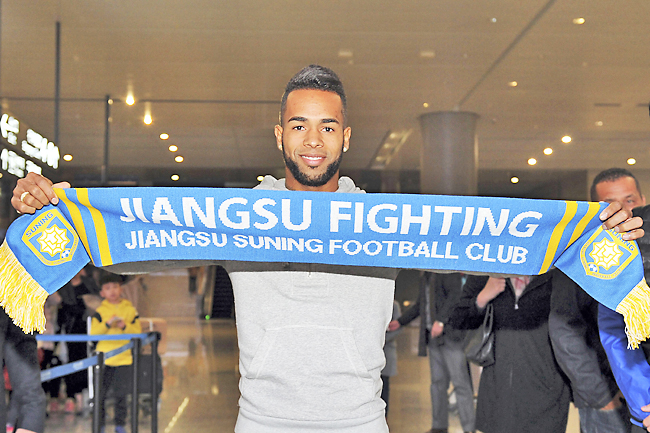SEOUL, SOUTH KOREA (AP) – The news last February that defending Chinese Super League (SL) champion Jiangsu FC was ceasing operations set the tone for a depressing year for football in the world’s most populous country.
It wasn’t a memorable campaign as China Daily, an English-language publication wrote on December 29.
“Shandong Taishan savoured winning its fifth Chinese Super League title over the weekend, however the news barely caused a stir on social media amid dwindling interest in the financially stricken domestic game,” the paper explained.
The spending spree on famous foreign stars that started in 2011 and reached a peak of over USD400 million in the winter of 2016-17 when Chinese Super League clubs collectively spent more than any other in the world, has well and truly ended.
Instead of South American and European internationals, clubs are left with debts and uncertain futures.

On February 28, retail giant Suning, which also owns a majority stake in Inter Milan, pulled the plug just three months after Jiangsu won its first championship.
“Even though we are reluctant to part with the players who have won us the highest honours, and fans who have shared solidarity with the club, we have to regretfully make an announcement,” a Jiangsu FC statement said.
“From today, Jiangsu Football Club ceases the operation of its teams.”
Most of the 16 teams in China’s top tiers are backed financially by property developers meaning that the downturn in China’s real estate market has had on-field consequences.The biggest company involved in football is Evergrande which took over Guangzhou in February 2010.
Significant investment in the team saw it win eight Chinese and two Asian championships by the end of the decade. In June however, Evergrande announced debts of over USD300 billion.
The team subsequently lost its star players as well as coach Fabio Cannavaro. According to reports, the company is considering selling its club.
In October Hebei FC, owned by China Fortune Land Development, revealed it was struggling. “Since 2020, Hebei FC has run into unprecedented difficulties,” the club said. “It is true that the club cannot pay water and electricity bills and travel expenses.”
The global pandemic has made the situation worse and not just because it has hit the bottom line of owners. In 2020, games were played in empty stadiums and while a limited number of fans were allowed at various points of the 2021 season, all games took place in either Guangzhou or Suzhou, reducing the revenue of clubs with sponsors and broadcasters also looking to reduce their investments.
The decision to suspend the league season from August to December to help the national team in qualification for the 2022 World Cup pushed the league further to the margins.
It was also ineffective as the local league will not receive a boost from China reaching its first World Cup since its 2002 debut.
The team has won just one out of six qualifiers so far and in November coach Li Tie left his position.
Amid all the gloom, it was perhaps fitting that Shandong Taishan, the last champion before the spending took off, has returned to the top now it has stopped.






